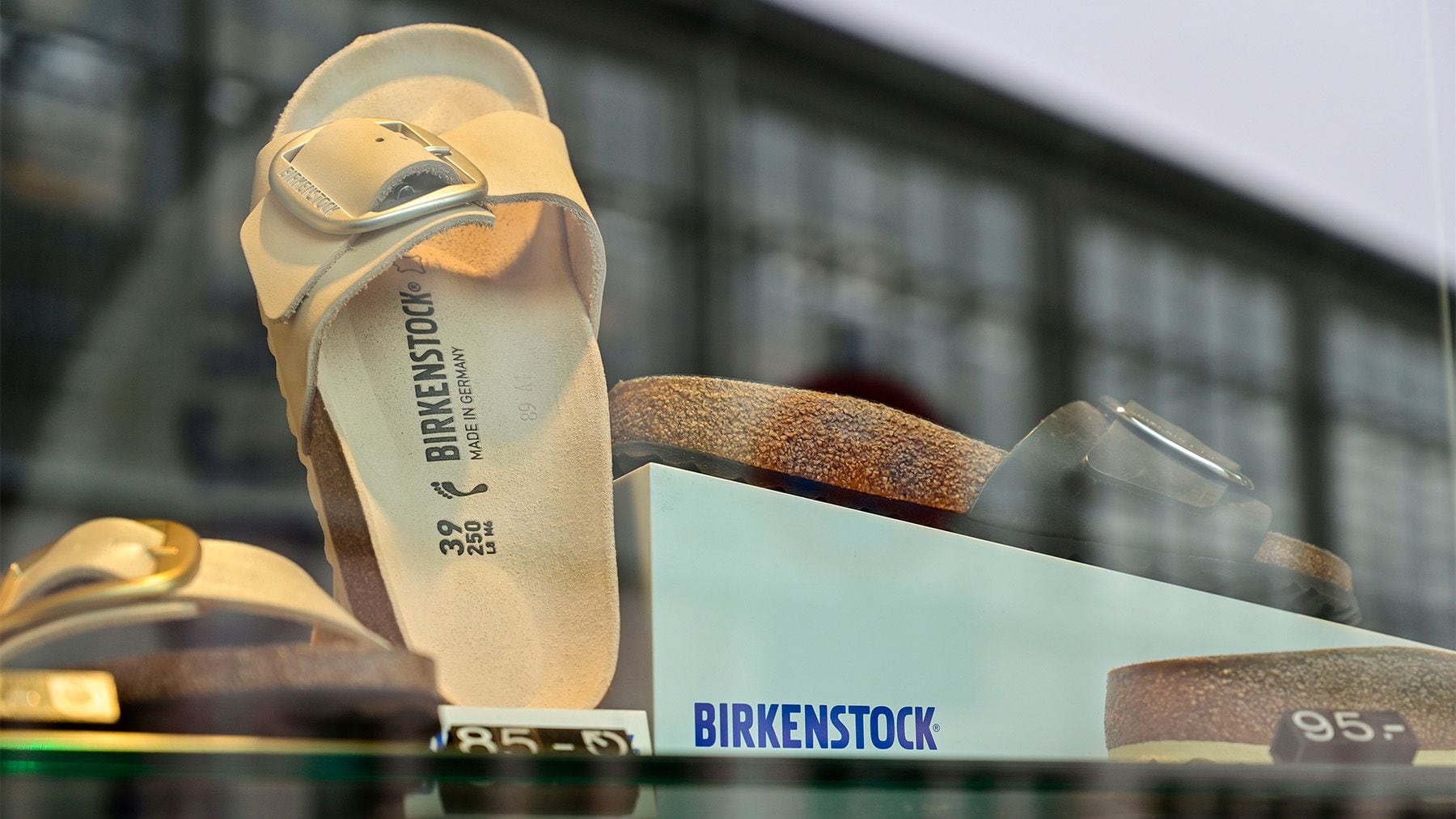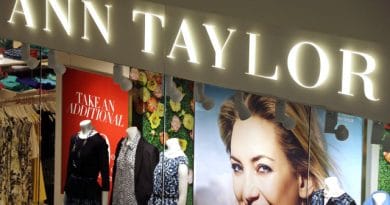The Investment Giant Behind Some of Fashion’s Biggest Deals
When Birkenstock makes its public-market debut as soon as this month, it won’t just be a win for the nearly 250-year-old sandal maker.
It will also be a victory for its owner, L Catterton, which looks all but certain to make a sizable profit, having purchased the company in 2021 for around €4 billion (about $4.9 billion at the time). The brand is now reportedly seeking a valuation of $8 billion.
The private-equity firm has been closely watched by the fashion industry since its formation in 2016, when LVMH and Groupe Arnault — the family holding company of LVMH-owner Bernard Arnault — joined forces with the private-equity firm Catterton, founded in 1989. Today, L Catterton is the majority owner of a number of well-known brands, such as Ganni, Etro and APC. It also backs companies through venture and minority investments, among them Savage x Fenty, Everlane, Giuseppe Zanotti, ThirdLove and Function of Beauty.
The close ties to LVMH and Arnault, who regularly vies for the title of “world’s richest person,” help lend the fashion brands in the firm’s portfolio an aura of prestige. Lately, it has also been successfully ushering companies to public listings at a time when the IPO market is still exiting a deep freeze.
Aside from Birkenstock, in July, the firm saw the public listing of another of its companies, Oddity Tech, owner of beauty brands such as Il Makiage and SpoiledChild. After the IPO, it boasted to its fund investors that its roughly $50 million investment in the Oddity was worth in the vicinity of $900 million by the close of the first trading day, according to a document seen by the Wall Street Journal. (The stock has since dropped by about one-third.)
“They have, just anecdotally, done very well within the consumer space,” said Jinny Choi, a private equity analyst at PitchBook. “The fact that they’re coming out with a new IPO in this market speaks to that level of expertise.”
The firm’s scope is broader than just fashion and beauty. L Catterton backs a sprawling array of companies globally and across sectors. It owns pet food makers, dental care providers and food-service businesses. It has its hands in private credit and real estate, too, with investments in the Miami Design District and the Brentwood area of Vancouver.
Just how big is L Catterton?
With about $35 billion of equity capital under management, L Catterton is “on the bigger side” in the private equity arena, according to Choi. It maintains 17 offices around the world and often describes itself as “the largest global consumer-focused private equity firm.”
The world’s PE mega-giants are still much larger. Blackstone, for instance, recently reached a record $1 trillion in assets under management.
But among firms focused on the middle market of consumer companies — those with revenues generally between $10 million and $1 billion — it’s a heavyweight. Thompson Street Capital Partners, which plays in some of the same areas as L Catterton, has $4.5 billion under management as of this writing. Nexus Capital Management has around $2.4 billion under management.
What is L Catterton’s ownership structure and relationship to LVMH?
One question always surrounding the firm is just how involved LVMH and the Arnault family are in L Catterton’s decision-making.
The two parties each own about 20 percent of the firm. In March, L Catterton received a minority investment from Hunter Point Capital, which now owns just under 10 percent, while the firm’s 60 partners retain the controlling stake of just over 50 percent.
L Catterton and LVMH have what the firm describes as a “special relationship” that entails “actively collaborating in areas such as consumer insights, brand strategies, retail expansion and economies of scale across the collective portfolio.” It allows L Catterton access to LVMH’s knowledge and expertise when it’s relevant. If L Catterton were evaluating a beauty company, it could hypothetically ask Sephora what it is seeing.
Scott Dahnke, co-chief executive of L Catterton, said in an interview that LVMH and the Arnault family share in the firm’s economic success, but they invest as limited partners with no special financial terms. They also introduce L Catterton to investment opportunities that might be attractive for the firm but don’t fit their business strategy. Birkenstock would be an example.
Wait, do they really own a pet food company?
Yes, a few in fact. Among those in its portfolio are Canidae, JustFoodforDogs and a third, I and Love and You.
To understand its range of investments, it helps to recall how the firm came into being. LVMH and Groupe Arnault began their relationship with Catterton, as it was then still known, in 1998 when they invested with the fund. LVMH would go on to launch its own private equity fund, L Capital, in 2001 as it sought investment opportunities in Europe that didn’t fit under the LVMH umbrella. It expanded into Asia as well in 2008. Catterton, meanwhile, was growing and reaching from the US and Canada into Latin America. The different entities joined forces in 2016 to create a firm that would cover much of the globe.
Catterton, however, was never focused specifically on fashion, and today, L Catterton isn’t either. The firm backs companies in industries from pet food and pet health to human health and human food. For example, it’s the majority owner of Bartaco and the Mexican chain Uncle Julio’s, and it’s a minority investor in Velvet Taco. (Clearly, they like tacos at L Catterton.) Other investment areas include technology, wellness and more. It has relationships with other strategic investors it can rely on for insight in these spaces.
Is that unusual?
Choi said the wide range “makes sense for their fund size.” She wasn’t surprised to see the firm investing outside the traditional consumer arena, too, in sectors such as health care and technology.
Less typical, she noted, is L Catterton’s exposure within the venture space. It currently lists 82 brands as venture or minority investments on its site. The fact that it has a formal environmental, social and governance policy also makes it stand out, she said.
So if it’s investing in everything from fashion to pet food, what is L Catterton’s strategy?
Rather than invest in specific sectors, the firm focuses on consumer trends to identify high-growth opportunities and uses extensive consumer research. Among the trends driving its investments, according to its site, are rapid technological transformation, economic polarisation, the rise of environmental and sustainability concerns, increased emphasis on health and wellness, growing diversity, the shift to direct-to-consumer and digital sales channels and more.
Is the Birkenstock IPO the start of a genuine thaw in the IPO market?
Fashion and beauty activity in the public markets has been at a near standstill for more than a year, Lanvin’s listing in December 2022 being probably the most notable exception. But with the Oddity Tech IPO and now Birkenstock’s imminent listing, investors and onlookers are wondering if it means activity is ready to pick up again. At the moment, Shein is said to be eyeing a listing, though it denies the reports, while Kim Kardashian’s Skims is believed to be in the planning stages.
It may be too early to say definitively, but in Choi’s view, it would be no coincidence for L Catterton to lead the way.
“Given this economic backdrop, higher-quality companies are bound to come back into the IPO space first, so it makes sense that a lot of these companies coming back to the public market are private-equity backed,” she said. “Hopefully this means more higher-quality companies could follow suit.”
In a Sept. 19 research note, analysts at Morgan Stanley also noted that higher interest rates, while not great for VCs raising capital, haven’t historically hurt IPOs. “While one swallow does not make a summer, the recent (and higher profile) issuances and their performances since IPO are giving the market cause for cautious optimism that the IPO window may have some longevity to it,” they wrote.

:quality(70):focal(520x452:530x462)/cloudfront-eu-central-1.images.arcpublishing.com/businessoffashion/7FBPXUJ75FCV3D47KG5YAWTPKI.jpg)

